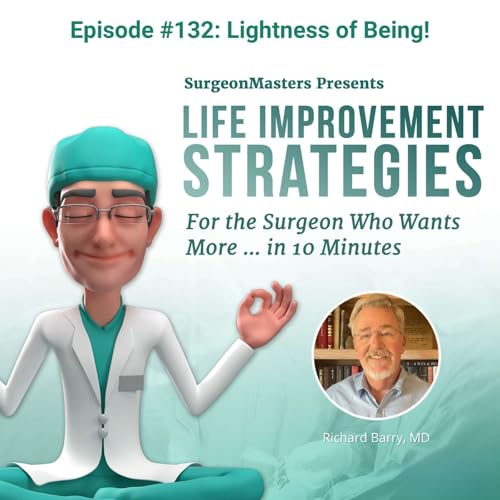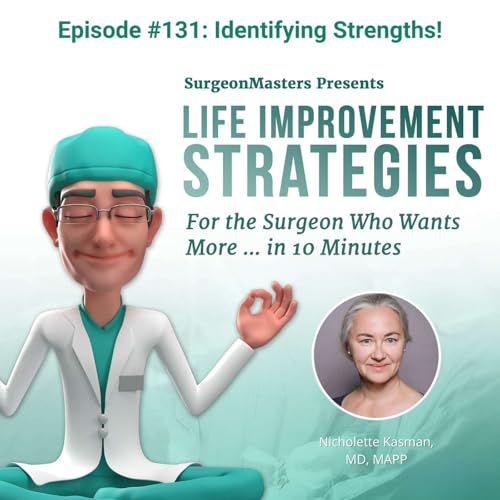Send us a text
Pump the brakes on your week and take 10 minutes to make your life as a surgeon just a little better…
Jeff welcomes to the podcast retired orthopedic surgeon and leader, Dr. Richard Barry.
We should all strive to achieve a lightness of being in our everyday relationships. Lightness is a transferable personality and management skill.
The term “lightness of being” refers to the deeper concept of a life lived with openness, humor, and humility. In other words, it’s about living with less attachment (or less heaviness), and more lightness.
In a practical sense, lightness of being means letting go of guilt, resentment, or control to move through life with a freer spirit. Lightness involves connection (whether it’s a patient connection, dealing with hospital staff, or spending time at home with our families). In all these situations, we should strive to be fully present in the present moment.
What steps does Rich suggest we take to shift our mindset from heaviness to lightness of being?
- Step 1 - Reframe seriousness. Life if serious enough. Ask yourself “does this need to be heavy or can I hold it lightly?” Shift the narrative from “I have to” to “I get to” which flips burden into opportunity.
- Step 2 - Look upon impermanence as freedom. Situations, feelings, and identities shift. This change in perspective allows you to loosen your grip.
- Step 3 - Choose small over big. Heaviness often comes from trying to solve everything at once. Break big tasks into smaller tasks that you can celebrate finishing.
Most importantly, PRACTICE your own lightness of being!
BIO
Rich Barry is a retired orthopaedic surgeon living in Northern California. Rich has a somewhat unique background. Prior to medical school and residency, he served as an Air Force C-130 pilot on a combat tour in Vietnam. He returned to the States with an assignment as a T-38 instructor pilot before being selected to attend medical school on an Air Force scholarship. After residency, he served as an Air Force orthopaedic surgeon at Travis AFB, California. After serving in the Air Force, he was in private practice in Davis California for over 20 years. He served as a clinical faculty member for the U.C. Davis Department of Orthopaedics.
Rich is a past-President of the California Orthopaedic Association and a past-Chair of the American Academy of Orthopaedic Surgeons’ Board of Councilors. He served on the AAOS’ Board of Directors. He has been honored with the California Orthopaedic Association’s Founders Award and the COA’s 2011 Tipton Leadership Award. Rich and his wife remain active in the Lamplighters Orthopaedic Association, a leadership alumni group of Fellows and their spouses.
Since retirement, Rich has remained active in his community. He served as a physician at a Solano County Health Services inner-city, primary care clinic in Vallejo for several years. He was the Chairman of the Solano County Board of Supervisors Alcohol and Drug Advisory Board. He served as a member of the Sheriff’s Search and Rescue team for over 5 years.
Rich is a disabled veteran. He is married, and is very proud of their three children, and 4 grandchildren.
SurgeonMasters is a physician peer community dedicated to improving the personal and professional well-being of physicians.
Join your colleagues online at SurgeonMasters.com for events, resources, and more.
PRACTICE Your Best!
 Jan 22 20269 mins
Jan 22 20269 mins 10 mins
10 mins 22 mins
22 mins 8 mins
8 mins Sep 18 20259 mins
Sep 18 20259 mins 8 mins
8 mins Aug 20 20259 mins
Aug 20 20259 mins Jul 31 20259 mins
Jul 31 20259 mins
